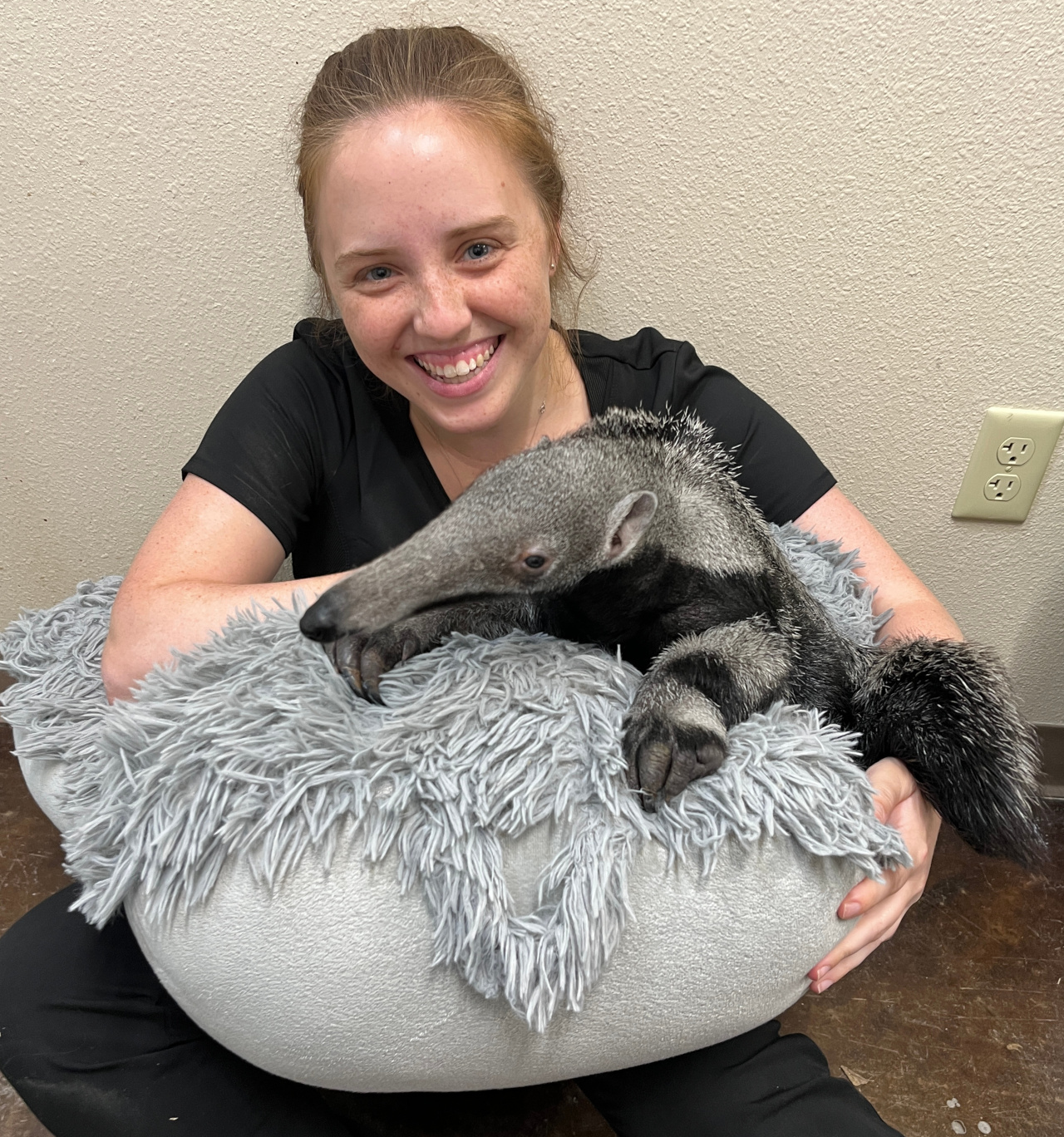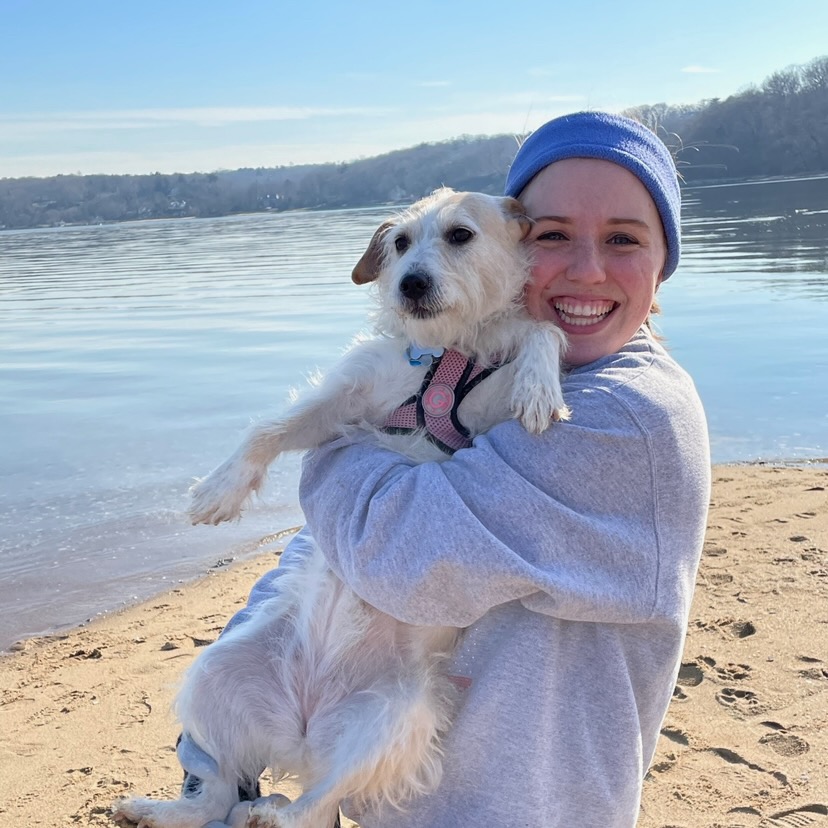Colleen, Class of 2024
When did you decide to pursue veterinary medicine?
For as long as I can remember, vet school was “on the table” for me. I knew I wanted to work with animals, but I wasn’t sure in what capacity. As an undergraduate student at Cornell, I discovered how much I loved the problem-solving aspect of clinical medicine, and I had several experiences that allowed me to work within the realm of veterinary medicine. I was hooked.
What did you do to prepare for veterinary school?
To prepare my vet school application, I worked to cultivate a variety of veterinary experiences. For me, this included work at a small animal hospital, an internship with an ambulatory veterinarian, and work at Wildlife Conservation Society’s Queens and Bronx Zoos. I also gained research experience that culminated in an honors thesis. I took a wide range of courses that I felt would help me in vet school, and I obviously worked to keep my grades up.
Looking back, what did you feel best prepared you for vet school and what do you wish you had done to enhance your preparation?
I think my experiences working alongside veterinarians prepared me the most for vet school because they sparked my passion for the field and allowed me to see the difference that vets can make for their patients and communities. I was really happy with my vet school application. Looking back, I wish I had focused a bit less on application preparation because that can be so stressful. I’ve learned that if you pursue what you’re interested in and make connections because they’re genuinely meaningful to you, the application falls into place along the way, so it’s not something that has to consume you.
What advice do you have for high school or college students who are interested in becoming a veterinarian?
While it’s definitely important to prepare for a vet school application, my advice is to enjoy your current life stage. Don’t do things just because you think they’ll stand out on an application. Pursue interests outside veterinary medicine while you have the opportunity to! For me, that meant pursuing an English minor. You’ll get to vet school eventually, but make sure you’re giving your full attention to where you are now and taking each step of the process as it comes.
What advice would you give a post-bac student or career changer who is preparing for a future application?
Your pathway to vet school has been unique. Capitalize on that! Lean into the knowledge and experiences you’ve gained along the way and what sets you apart from more traditional students.
Why did you choose Cornell Vet? What were some of the things that influenced your decision?
My family started receiving Cornell Vet newsletters when I was a kid due to a mailing error. I remember sitting with the newsletters and reading about all of the impactful work being done at Cornell. It was always the gold standard for me. When I attended Cornell as an undergraduate, I saw how all of the vet students I met were inspired by what they were learning and enthusiastic about their work. I wanted to be just like them. I was drawn to the abundance of opportunities at Cornell Vet and I also felt that the problem-based learning style would make me a better student and veterinarian.
What do you like most about Cornell and your experience as a student?
I really appreciate the abundance of opportunities to get involved at Cornell Vet. As someone who learns best through hands-on experiences, I have found that these experiences are ready and waiting for you at Cornell. I am also constantly wowed by the diversity of experiences at Cornell Vet. No matter your background or your interests, there’s a niche for you here.
How have the faculty enhanced your education and learning?
Throughout my vet school journey, I’ve been amazed by how giving faculty are of their time and expertise. During Block I in particular, I have vivid memories of meeting faculty in the gross lab before classes began to talk concepts through. The faculty have made me feel supported and valued within the vet school community. Just as importantly, they give me something to aspire to. Cornell faculty members are inspiring.
Describe how PBL works and fits your learning style.
The PBL curriculum was one of the key reasons I chose to come to Cornell, and it’s a decision I would make again. PBL is valuable because it teaches you to consider things in a stepwise order and to think like a clinician. Because the answers aren’t handed to you, you’re pushed to seek them out, which is both a valuable skill to have and far more interesting than reading facts from a textbook. By working in tutor groups, we’re encouraged to work alongside our peers and to learn from each other. This structure was particularly valuable to me as a first-year student because I had a built in academic support system. The teamwork in tutor rooms mirrors what I’ve seen in busy clinics, where all clinicians are working together in pursuit of a common goal. Perhaps most importantly, we’re supported by a faculty member every step of the way.




